ADVANCED THERAPIES XCHANGE EUROPE
Brussels, Belgium
June 26, 2023
Welcome to hubXchange’s Advanced Therapies Xchange Europe 2023, bringing together executives from pharma and biotech to address and find solutions to the key issues faced in cell and gene therapeutics.
Discussion topics will cover Cell Tx Development, Gene Tx Development, C&G Tx Bioprocessing and C&G Tx Manufacturing.
Take advantage of this unique highly interactive meeting format designed for maximum engagement, collaboration and networking with your peers.
Venue: DoubleTree by Hilton Brussels City, Ginestestraat 3 Rue Gineste, 1210 Brussels, Belgium
SNAPSHOTS OF DISCUSSION TOPICS
- Enhancing CAR-T cell efficacy
- Alternatives to autologous-allogenic and in vivo cell therapies
- The promise and challenges of PSC-CAR-NK cell therapy
- Tackling the challenges of AAV vector manufacturing
- Adapting analytics and quality control in cell therapy manufacturing to ensure adequate safety, purity and potency of final products
- Future of autologous cell therapy
Full Xchange Agenda
Click on each track for detailed agenda
Cell Tx Development
The promise and challenges of TCR-based cell therapies
- Harnessing the immune system to defeat disease
- Precision approaches to developing TCR-based cell therapies
- Manufacture and commercialization of TCR-based cell therapies
Vice President, Business Development, Chief Development Officer, Anocca
Mark Farmery, PhD, is CDO at Anocca and has been with the company since 2020. He is an experienced biopharma/biotech strategic leader and business developer and is responsible for Anocca’s corporate development and building technology and manufacturing partnerships. Dr Farmery received his PhD from the University of Leeds, UK, and has previously held senior roles at Karolinska Institutet, Abliva and AstraZeneca.
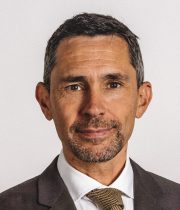
Beyond development and into the clinic: How do we mitigate the impacts of the narrow cell viability window to make cell therapies viable at scale, as treatments in hospitals worldwide?
- How to improve the viability of cell therapies post-cryopreservation
- Important considerations for extending cell viability at room temperature – during transport, and importantly, in the clinic
- How may the quality of excipients affect the performance of the final cell therapy product?
Director of Sales and Business Development, Europe, Albumedix
Paul is passionate about delivering new medicines and advanced therapies to market at pace using albumin-enabled solutions. Paul, and the team he manages, are responsible for developing partnerships that bring to reality albumin-enabled solutions that support advanced therapies from development to commercialisation.
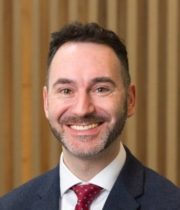
Networking Lunch
Spotlight Presentation
Generation of Recombinant Tool Antibodies to Support Cell and Gene Therapy Development
Highly specialized antibodies are required for cellular kinetics and bioanalytical assays supporting cell and gene therapy development. These antibodies are difficult to generate utilizing animal immunization, and are prone to variability between batches and inconsistent supply. Bio-Rad custom antibody experts have developed recombinant antibodies against chimeric antigen receptors and transgene products utilizing a process that combines antibody phage display with SpyTag technology. Applying these powerful technologies enables the production of antibodies in multiple formats in under 3 months and offers a range of options for site-directed conjugation. These highly specific, well-characterized antibody reagents are sequence defined, guaranteeing a secure supply throughout the assay lifecycle. Our scientists also offer therapeutic antibody discovery through the Pioneer Platform to unlock discovery of clinical-quality candidates on industry-leading timelines.
Technical Sales Specialist, Custom Antibodies, Bio-Rad.
Katharina Reefschläger is a technical sales specialist for Bio-Rad´s Custom Antibody
Generation Platforms. She has been with Bio-Rad in various sales related positions for over 10 years. Prior to this she worked in a genetic diagnostic lab as scientific
customer support for more than 2 years. Katharina holds a diploma in Biology from Julius-Maximilians-University Würzburg/Germany and a PhD in Biology from Ludwig-Maximilians-University Munich/Germany.
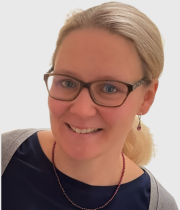
Spotlight Presentation
Building a Commercial-Ready Cell & Gene Therapy Supply Chain Key considerations in the assessment and integration of cGMP compliant ancillary materials for cell therapy manufacturing
PhD, Director of Business Development, Akron
Sara has more than a decade of research and business development experience in the Cell and Gene Therapy industry. After completing her PhD at Karolinska Institute (Sweden) in Regenerative Medicine, she joined the Japanese company Healios to manage the development of their overseas cell therapy projects. Her passion and extensive knowledge on ATMPs, GMP and scale-up manufacture has promoted Akron’s growth, expanding its presence and influence into Europe, bringing Akron’s products to more than 100 companies in the C> field.
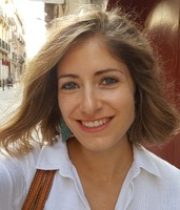
Alternatives to autologous- allogenic and in vivo cell therapies
- Why do we need an alternative to autologous products? Advantages and disadvantages of allogenic therapies
- In vivo vs ex vivo: safety, delivery systems and ethical issues
- Implications of the manufacturing of allogeneic products and in vivo therapies: donor choice, cell banks, cost reduction towards universal formulations
Science Strategy Associate Director, Quell Therapeutics
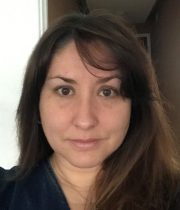
C&G Tx Manufacturing
Process Expert CGT, Novartis
Defining gene-editing nucleases and plasmid DNA manufacturing strategies
- Optimization & Development: Invest upfront to ensure downstream manufacturing efficiencies. Defining the balance between speed & time investment
- Facility & Quality Requirements: Understanding your CMO’s facility infrastructure & quality systems to ensure suitability from toxicology through to late-clinical and commercial
- Analytics & Documentation: Defining appropriate analytics and documentation for phased-appropriate manufacturing to meet regulatory requirements
- Scale-Up: Build a strategy and CMO partnership that bridges to large-scale manufacturing and validation capabilities
PhD, Director of Business Development, Akron
Sara has more than a decade of research and business development experience in the Cell and Gene Therapy industry. After completing her PhD at Karolinska Institute (Sweden) in Regenerative Medicine, she joined the Japanese company Healios to manage the development of their overseas cell therapy projects. Her passion and extensive knowledge on ATMPs, GMP and scale-up manufacture has promoted Akron’s growth, expanding its presence and influence into Europe, bringing Akron’s products to more than 100 companies in the C> field.

Networking Lunch
Spotlight Presentation
Generation of Recombinant Tool Antibodies to Support Cell and Gene Therapy Development
Highly specialized antibodies are required for cellular kinetics and bioanalytical assays supporting cell and gene therapy development. These antibodies are difficult to generate utilizing animal immunization, and are prone to variability between batches and inconsistent supply. Bio-Rad custom antibody experts have developed recombinant antibodies against chimeric antigen receptors and transgene products utilizing a process that combines antibody phage display with SpyTag technology. Applying these powerful technologies enables the production of antibodies in multiple formats in under 3 months and offers a range of options for site-directed conjugation. These highly specific, well-characterized antibody reagents are sequence defined, guaranteeing a secure supply throughout the assay lifecycle. Our scientists also offer therapeutic antibody discovery through the Pioneer Platform to unlock discovery of clinical-quality candidates on industry-leading timelines.
Technical Sales Specialist, Custom Antibodies, Bio-Rad.
Katharina Reefschläger is a technical sales specialist for Bio-Rad´s Custom Antibody
Generation Platforms. She has been with Bio-Rad in various sales related positions for over 10 years. Prior to this she worked in a genetic diagnostic lab as scientific
customer support for more than 2 years. Katharina holds a diploma in Biology from Julius-Maximilians-University Würzburg/Germany and a PhD in Biology from Ludwig-Maximilians-University Munich/Germany.

Spotlight Presentation
Building a Commercial-Ready Cell & Gene Therapy Supply Chain Key considerations in the assessment and integration of cGMP compliant ancillary materials for cell therapy manufacturing
PhD, Director of Business Development, Akron
Sara has more than a decade of research and business development experience in the Cell and Gene Therapy industry. After completing her PhD at Karolinska Institute (Sweden) in Regenerative Medicine, she joined the Japanese company Healios to manage the development of their overseas cell therapy projects. Her passion and extensive knowledge on ATMPs, GMP and scale-up manufacture has promoted Akron’s growth, expanding its presence and influence into Europe, bringing Akron’s products to more than 100 companies in the C> field.

Alternatives to autologous- allogenic and in vivo cell therapies
- Why do we need an alternative to autologous products? Advantages and disadvantages of allogenic therapies
- In vivo vs ex vivo: safety, delivery systems and ethical issues
- Implications of the manufacturing of allogeneic products and in vivo therapies: donor choice, cell banks, cost reduction towards universal formulations
Science Strategy, Associate Director, Quell Therapeutics
Maria has been with the company since 2019. Before accepting the Science Strategy roll, she was leading the Discovery and New Technologies team. She is a experienced scientist and leader, currently responsible of scientific innovation and CAR development, and scientific lead of external collaborations. Dr Alonso-Ferrero received her PhD in Gene and Cell Therapy from the Complutense University (Madrid, Spain) and has previously held scientific leadership roles at University College London, GSK and Gammadelta Therapeutics.

Evening Drinks Reception
